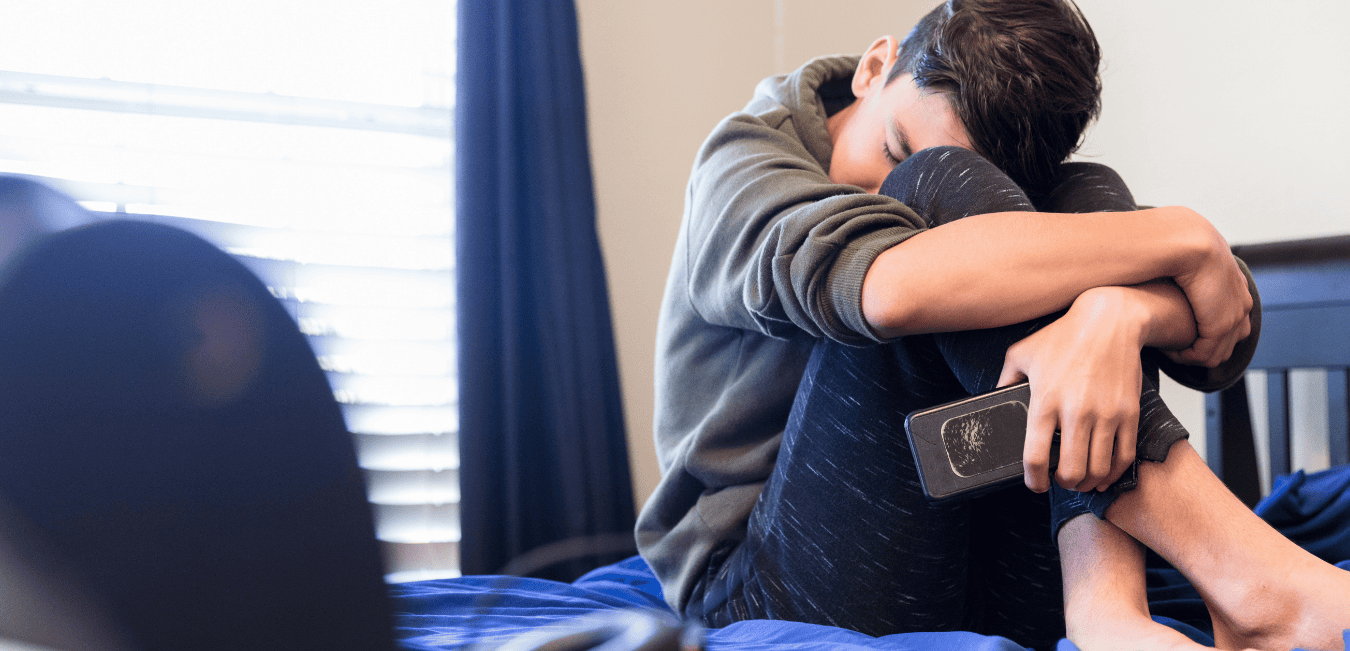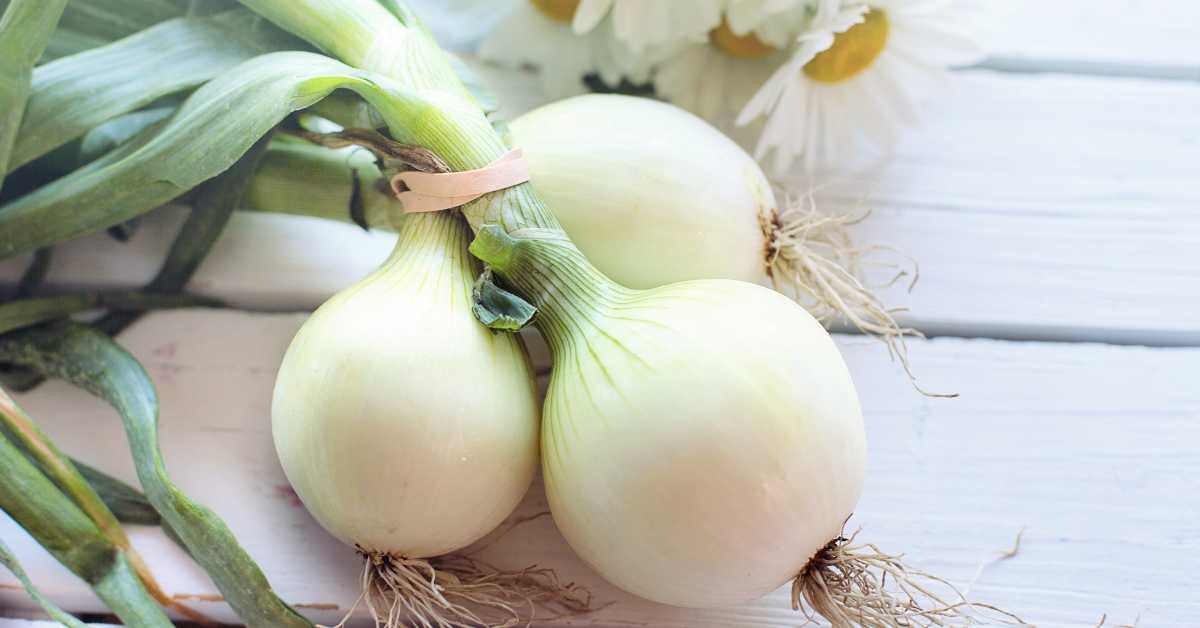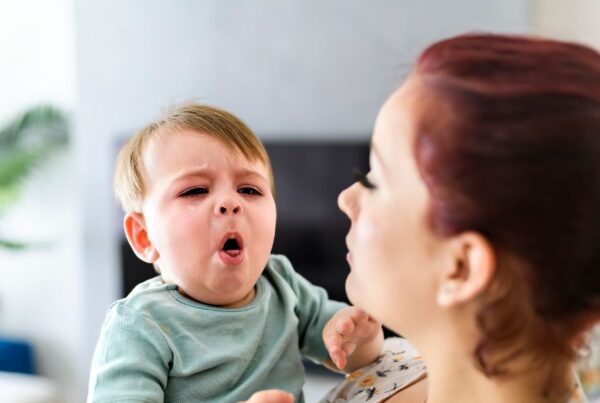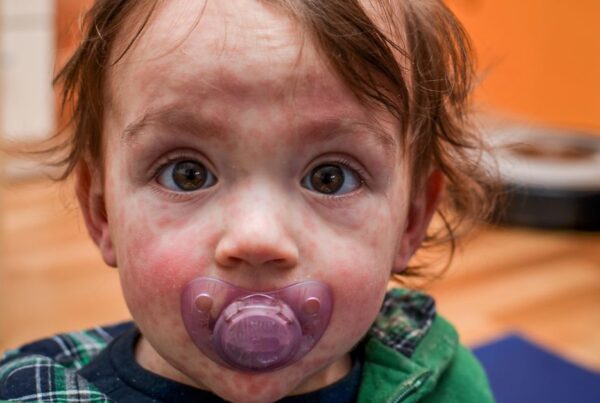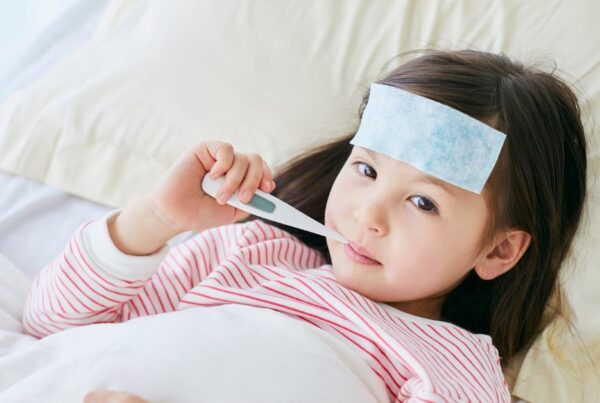Bedwetting is common in older kids and teens. While 12-25% of 4 year olds wake up wet, 7-10% of 8 year olds, 2-3% of 12 year olds and 1-3% of older teens still wet the bed. If untreated, bedwetting can persist into adulthood at a rate of 2-3%. While it can be frustrating and worrisome as a parent, it can be even more upsetting for kids. This article will cover reasons that some kids wet the bed, natural solutions for bedwetting, and when to see a doctor.
The most important things to keep in mind are that kids don’t wet the bed because of laziness. It is not bad behavior and in almost all cases, they will grow out of bedwetting in the timeline that is right for them.
Reasons Kids Wet The Bed
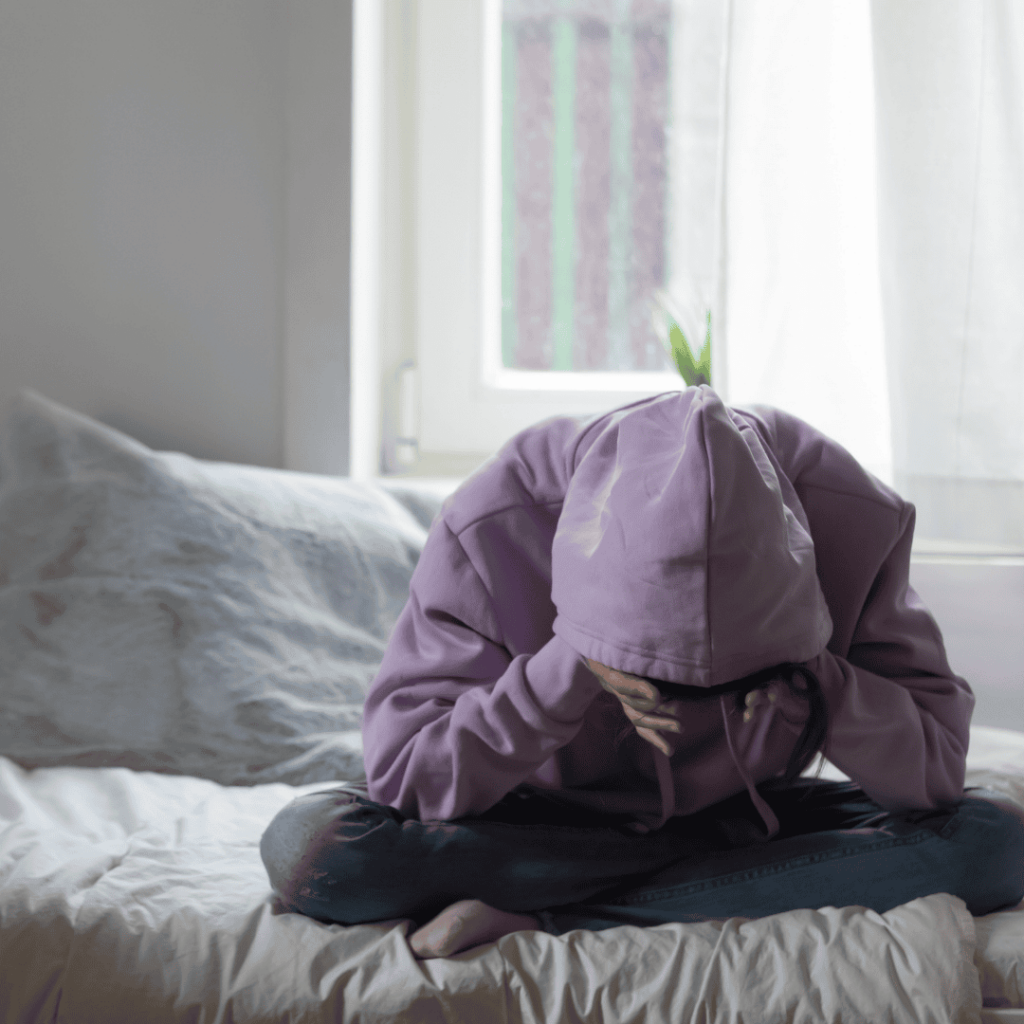 Bedwetting in children has many different possible causes, but most commonly, it is simply a matter of development. We don’t know why some kids develop the ability to stay dry through the night earlier than others. Bedwetting is more common in boys than in girls, seems to be related to other developmental delays in some cases, seems to be related to ADHD in some cases, and has a strong genetic link.
Bedwetting in children has many different possible causes, but most commonly, it is simply a matter of development. We don’t know why some kids develop the ability to stay dry through the night earlier than others. Bedwetting is more common in boys than in girls, seems to be related to other developmental delays in some cases, seems to be related to ADHD in some cases, and has a strong genetic link.
- Small bladder. Some kids have a smaller bladder which can hold less urine. For these children, waiting is the only solution.
- Inability to recognize a full bladder. This can happen to deep sleepers and may be partially due to slow development of the nerves that send messages to and from the bladder.
- Hormone imbalance. At night the body secretes a hormone called antidiuretic hormone (ADH) which is also known as arginine vasopressin (AVP) or simply as vasopressin. This hormone reduces the amount of urine that the kidneys secrete at night. Some children don’t produce enough of this hormone when they are young.
- Urinary tract infection (UTI). An infection of the urinary tract can cause bedwetting along with other symptoms like painful, frequent, or urgent urination, daytime accidents, and pink or red urine. UTIs should be treated promptly.
- Sleep apnea. Sleep apnea occurs due to breathing problems while sleeping which result in drops of blood oxygen levels. This often happens in children due to inflamed tonsils or adenoids. Sleep apnea would be suspected if bedwetting occurs alongside snoring and daytime drowsiness.
- Diabetes. Diabetes is suspected especially if children have been dry at night and bedwetting returns, but it can be the cause of bedwetting in children who have never had dry nights as well. Other symptoms of diabetes include increased thirst, increased hunger, irritability, fatigue, and weight loss.
- Constipation. Both acute and chronic constipation can cause bedwetting. See my article for solutions to constipation.
- Food allergies. Food allergies can sometimes be at the root of bedwetting. An elimination diet may be helpful. Soybeans and hazelnuts may be the most common allergens associated with bedwetting but more research is needed.
- Stress/anxiety. Bedwetting often accompanies stressful events (divorce, moving, abuse, school difficulties, social problems, etc).
- Structural problems and underlying health issues. Structural problems and underlying health issues may be at the root of bedwetting and should be explored with a doctor if bedwetting persists past age 7, if other symptoms are present, or if bedwetting returns after a dry period of 6 months or more.
Natural Solutions For Bedwetting
Bedwetting usually resolves itself with time, however there are some natural approaches that might help. With any of these approaches it is important to make sure to take the child’s personality, needs, and abilities into consideration. Avoid shame, guilt, punishment, and negative consequences.
- Avoid drinks before bed. This is the first advice always given. Be sure to hydrate well during the first part of the day and avoid drinks 1-2 hours before bedtime. Some children are very thirsty before bed, so small sips of water may help.
- Avoid bladder irritating foods. Often parents will unknowingly give their children bladder irritating food and drinks before bed. In my practice, I’ve seen diet changes stop bedwetting without any other intervention. Fruit, spicy foods, tomatoes, yogurt, and fruit juices are the most common bladder irritants for children and should be enjoyed in the earlier part of the day for kids who are sensitive to them.
- Herbal medicine to soothe the bladder. Herbs like cornsilk, marshmallow root, fennel, and chamomile can be made into soothing teas or glycerites. These herbs are slightly diuretic and so should be used in the first half of the day rather than before bed.
- Urinating before bed. Adding urination to the bedtime routine can be helpful for some kids.
- Supporting nervous system development. Bedwetting is sometimes associated with slower growth and nervous system development in general. For these kids, I make sure to add nervous system supports like a multivitamin, fish oil, and probiotic.
- Checking in with kids about their mental health. 2022 has been a stressful year for people of all ages. See my articles about signs of anxiety in children and how to support kids with anxiety.
- Healing the gut. Because of the link between constipation and bedwetting, ensuring that the bowel is functioning optimally is always important when addressing bedwetting.
- Nighttime alarm. Alarms are available to help children increase the awareness that they have urinated. These alarms are effective approximately 75% of the time and are more effective than drug therapy. These alarms should only be used if both kids and parents are on board. They take approximately 2-3 months to be effective.
- Nightlight. A sometimes overlooked cause of bedwetting in smaller children is difficulty getting to the bathroom. A hallway night light can be a simple fix.
- Raisins and walnuts. Raisins and walnuts before bed are a folk remedy for bedwetting that hasn’t been studied. However, raisins and walnuts are both very high in arginine, the amino acid required to make arginine vasopressin which reduces nighttime urine production. This is an easy intervention with little to no potential downside.
- Salve to prevent chafing. Sometimes chafing of the buttocks and genitals can be a concern with bedwetting. A gentle ointment can help. I look for products with soothing botanicals like chickweed, calendula, and lavender.
- Managing odors. Making sure to wash kids extra well in the morning, using natural room deodorizers, and hospital grade mattress protectors can all be helpful in lowering the negative consequences of bedwetting.
When To See A Doctor For Bedwetting
In most cases, bedwetting is not something to be concerned about. However, it is important to see a doctor if:
- Bedwetting returns after being gone for 6 months or more.
- Bedwetting is accompanied by signs of a urinary tract infection (painful, frequent, urgent urination and/or changes to urine color or odor).
- Bedwetting is accompanied by other symptoms such as difficulty breathing, fatigue, weight loss, etc.
- The child is very distressed by bedwetting.
- The urine stream is weak or dribbling.
- Natural treatments aren’t working and you would like to try a pharmaceutical option.
Summary
Bedwetting is normal in young children and quite common in older children as well. In most cases, it is a matter of development and will resolve itself in time. Bedwetting is not caused by laziness or misbehavior and should never be addressed with shame, guilt, or punishment. There are many natural treatments available.
References:
Cuzzo B, Padala SA, Lappin SL. Physiology, Vasopressin. [Updated 2021 Aug 27]. In: StatPearls [Internet]. Treasure Island (FL): StatPearls Publishing; 2022 Jan-. Available from: https://www.ncbi.nlm.nih.gov/books/NBK526069/
Sinha, R., & Raut, S. (2016). Management of nocturnal enuresis – myths and facts. World journal of nephrology, 5(4), 328–338. https://doi.org/10.5527/wjn.v5.i4.328
Mungan, N. A., Seckiner, I., Yesilli, C., Akduman, B., & Tekin, I. O. (2005). Nocturnal enuresis and allergy. Scandinavian journal of urology and nephrology, 39(3), 237–241. https://doi.org/10.1080/00365590510007739
